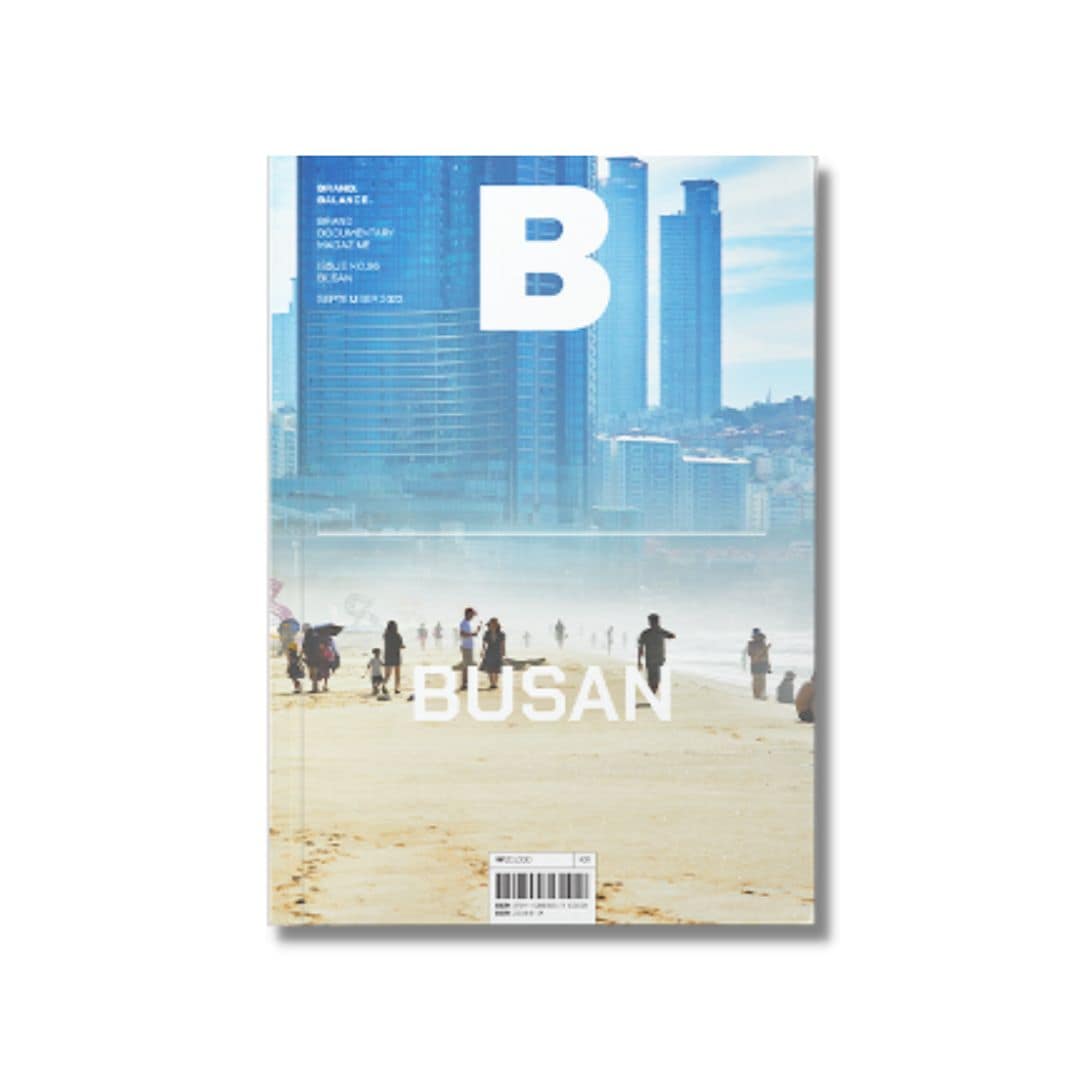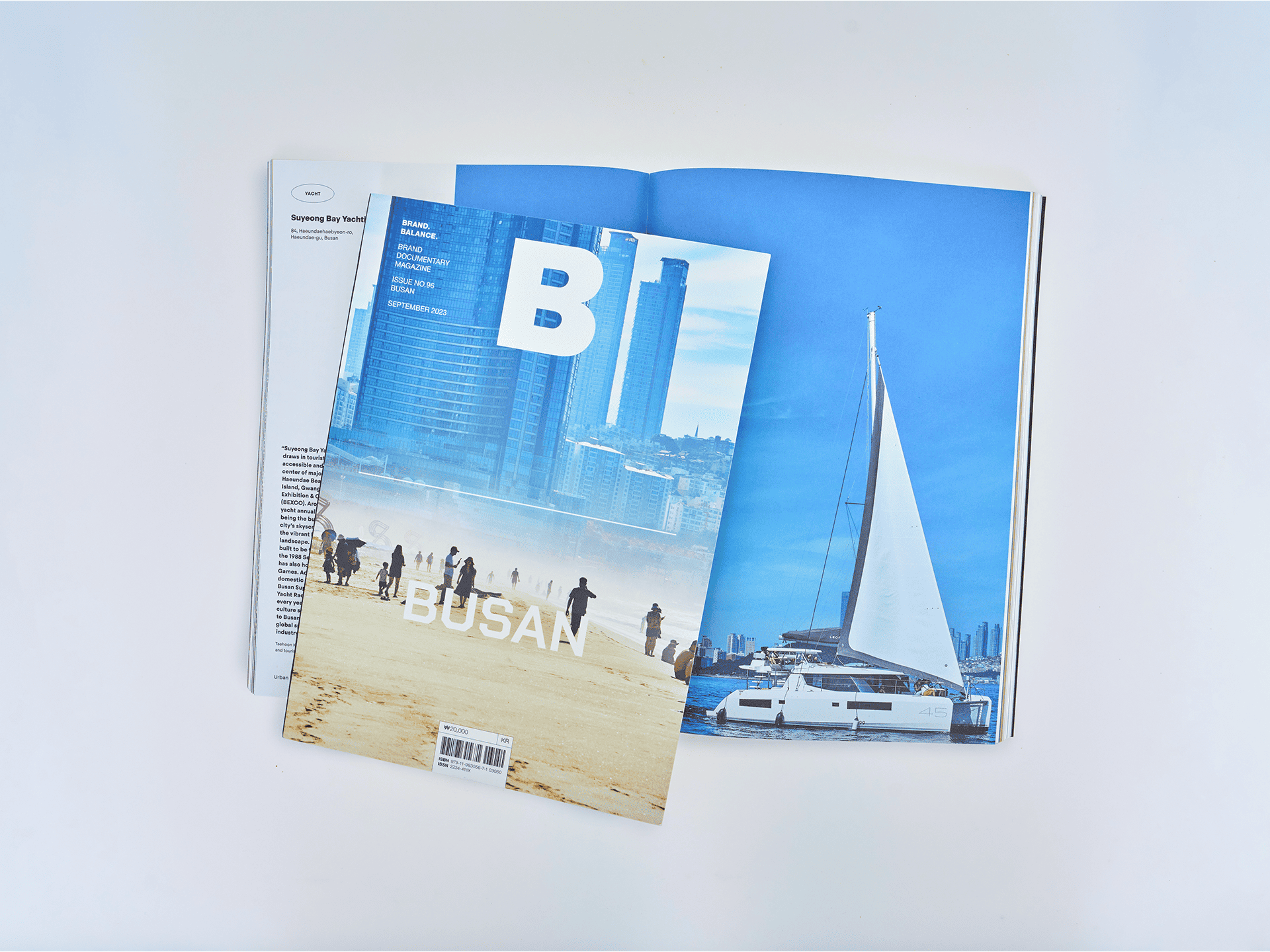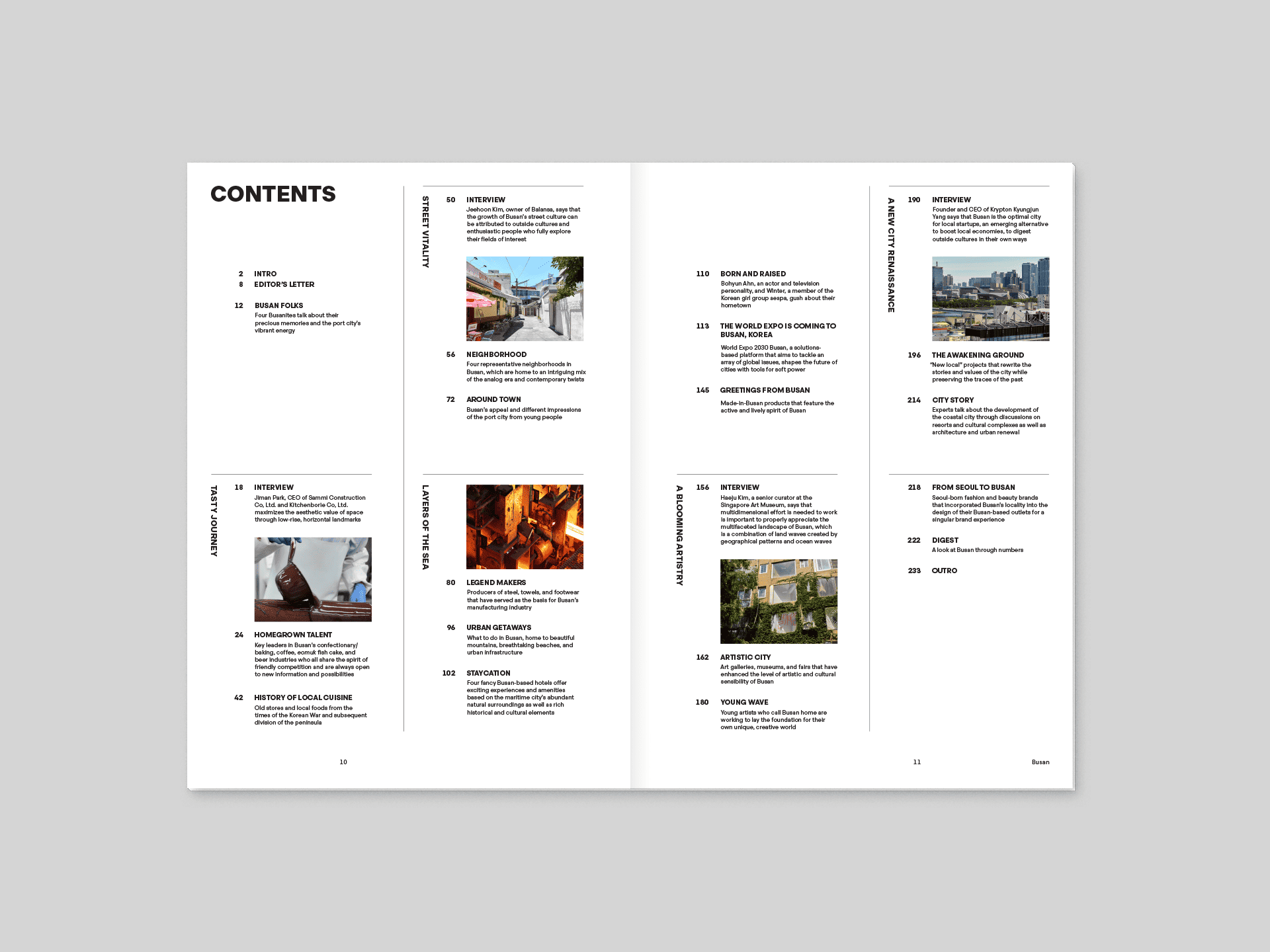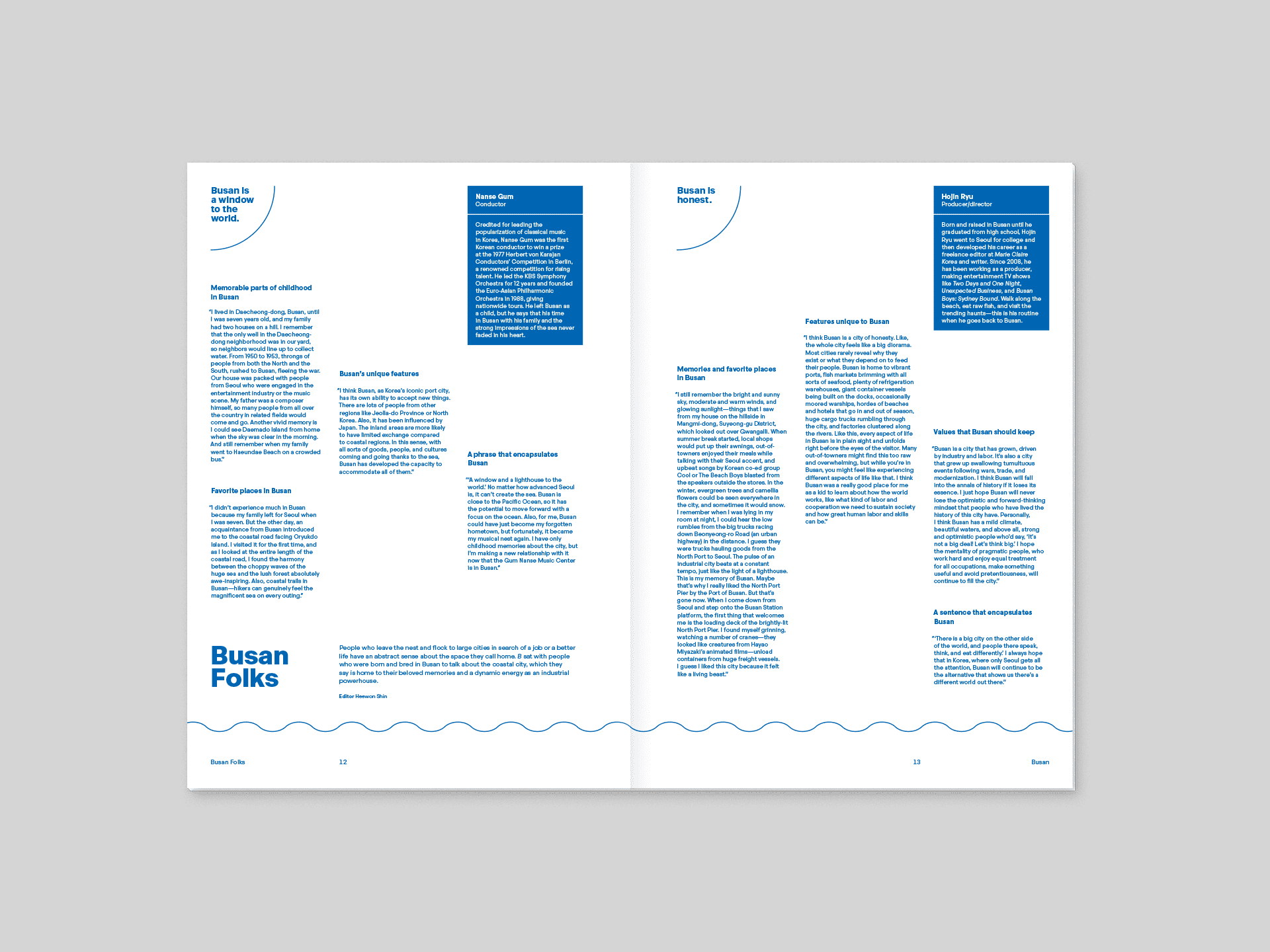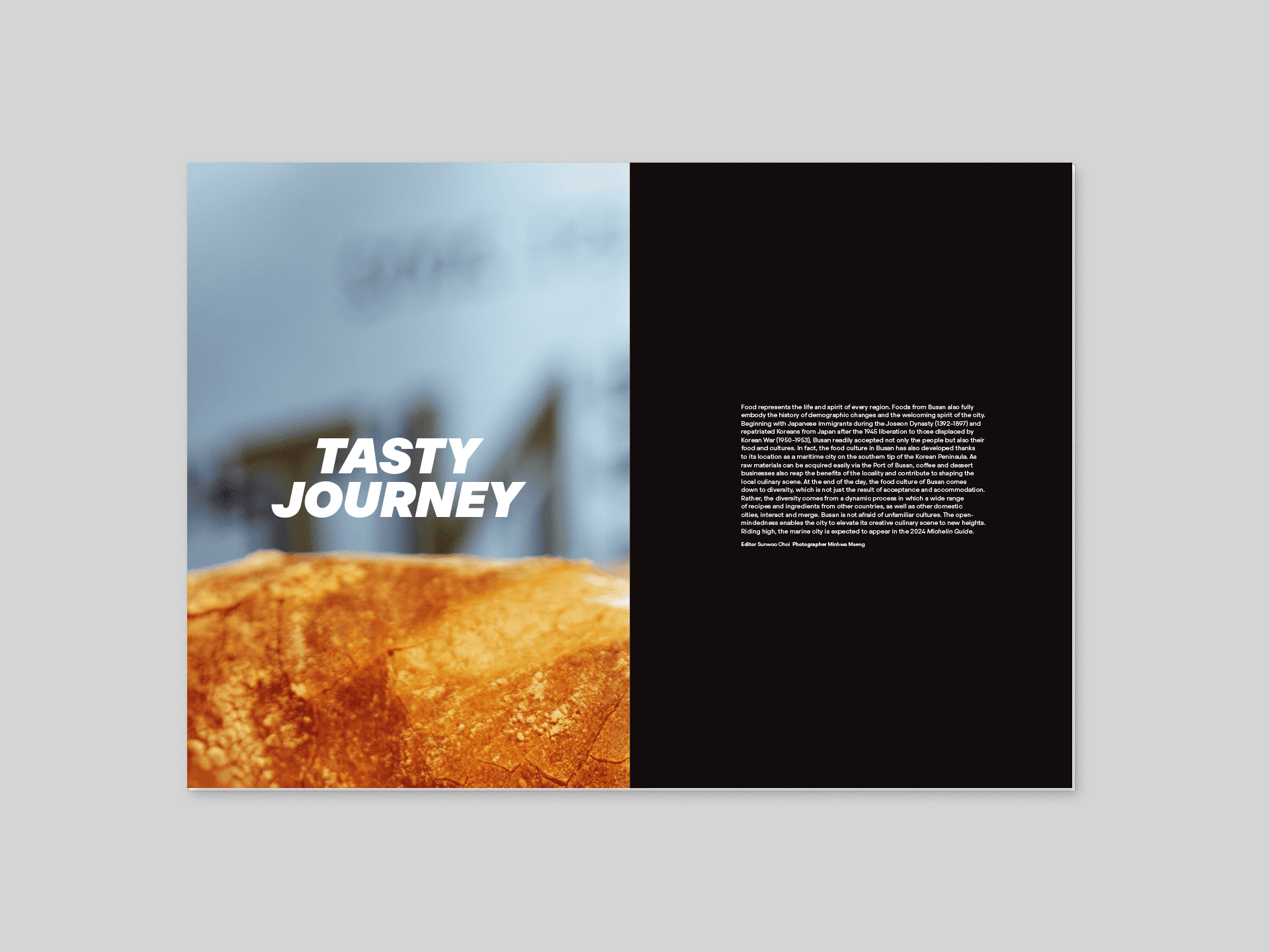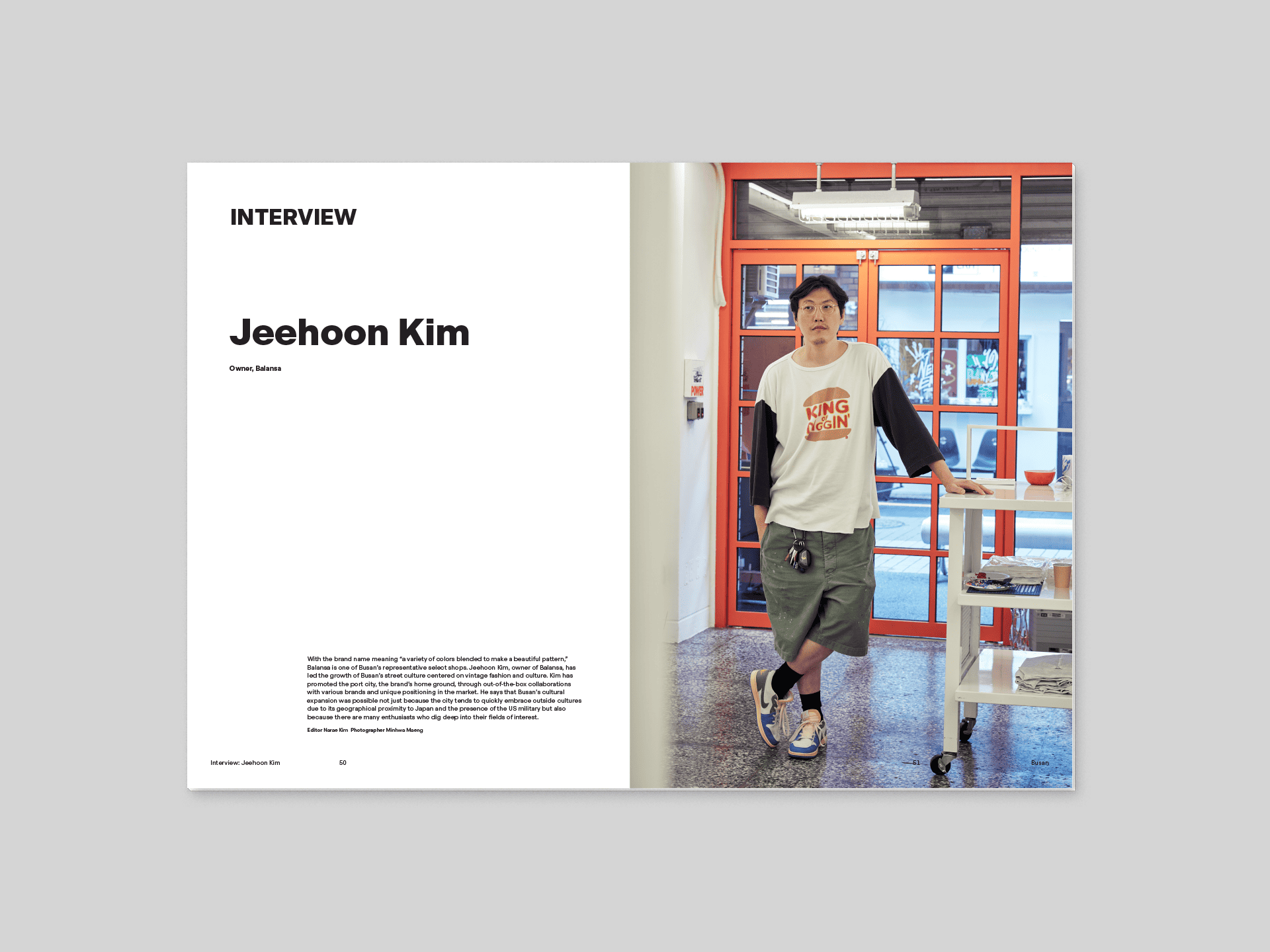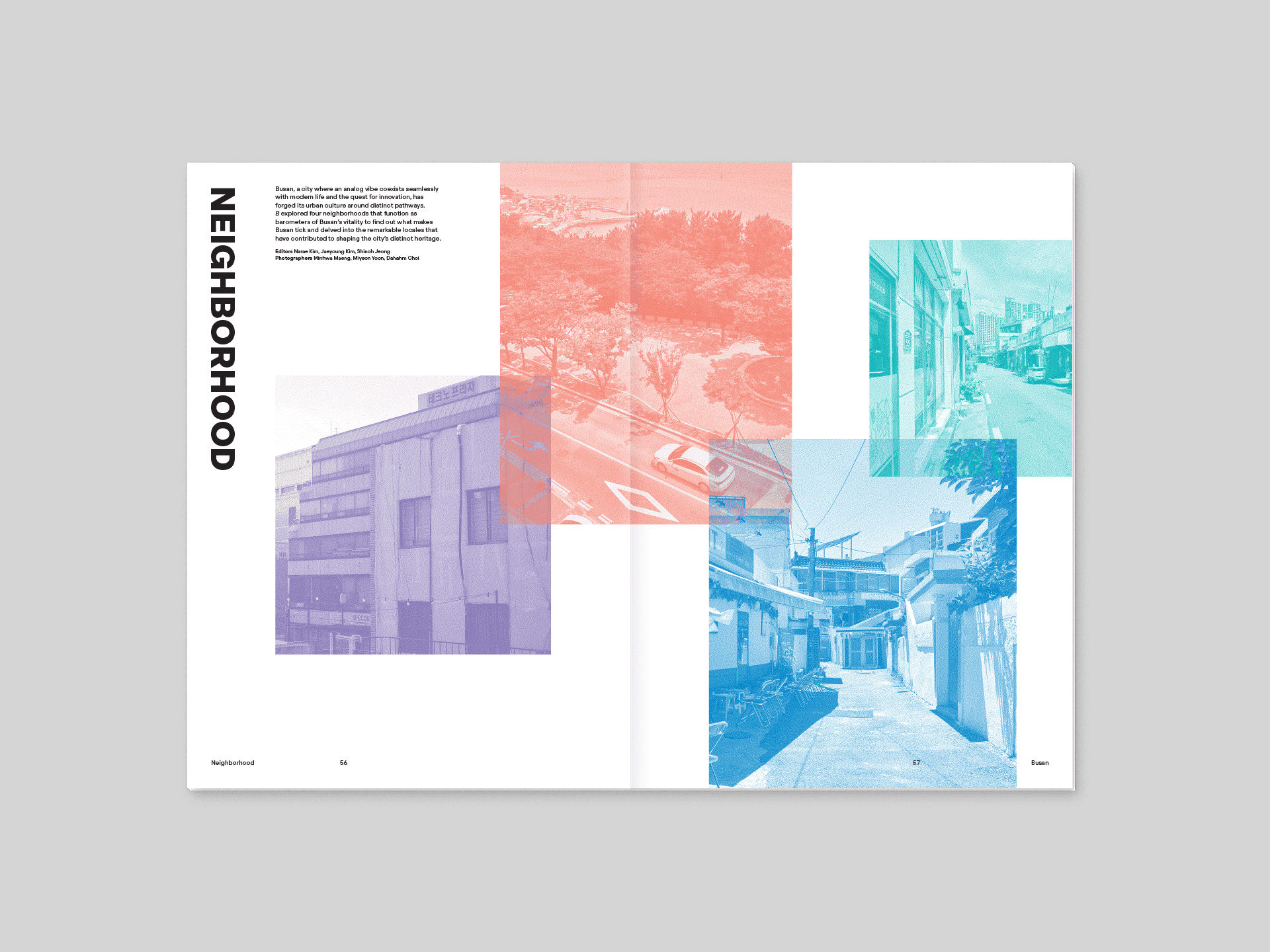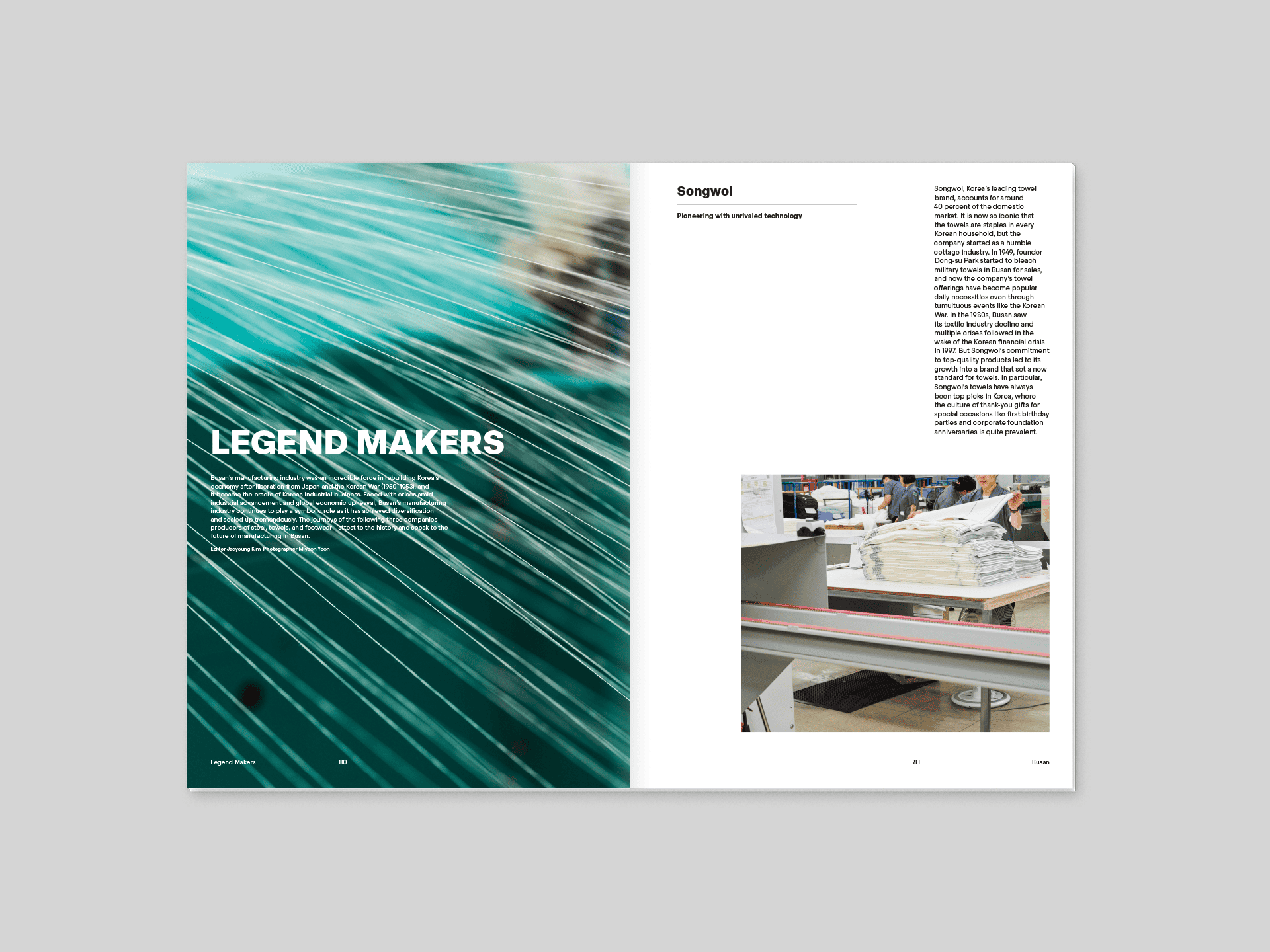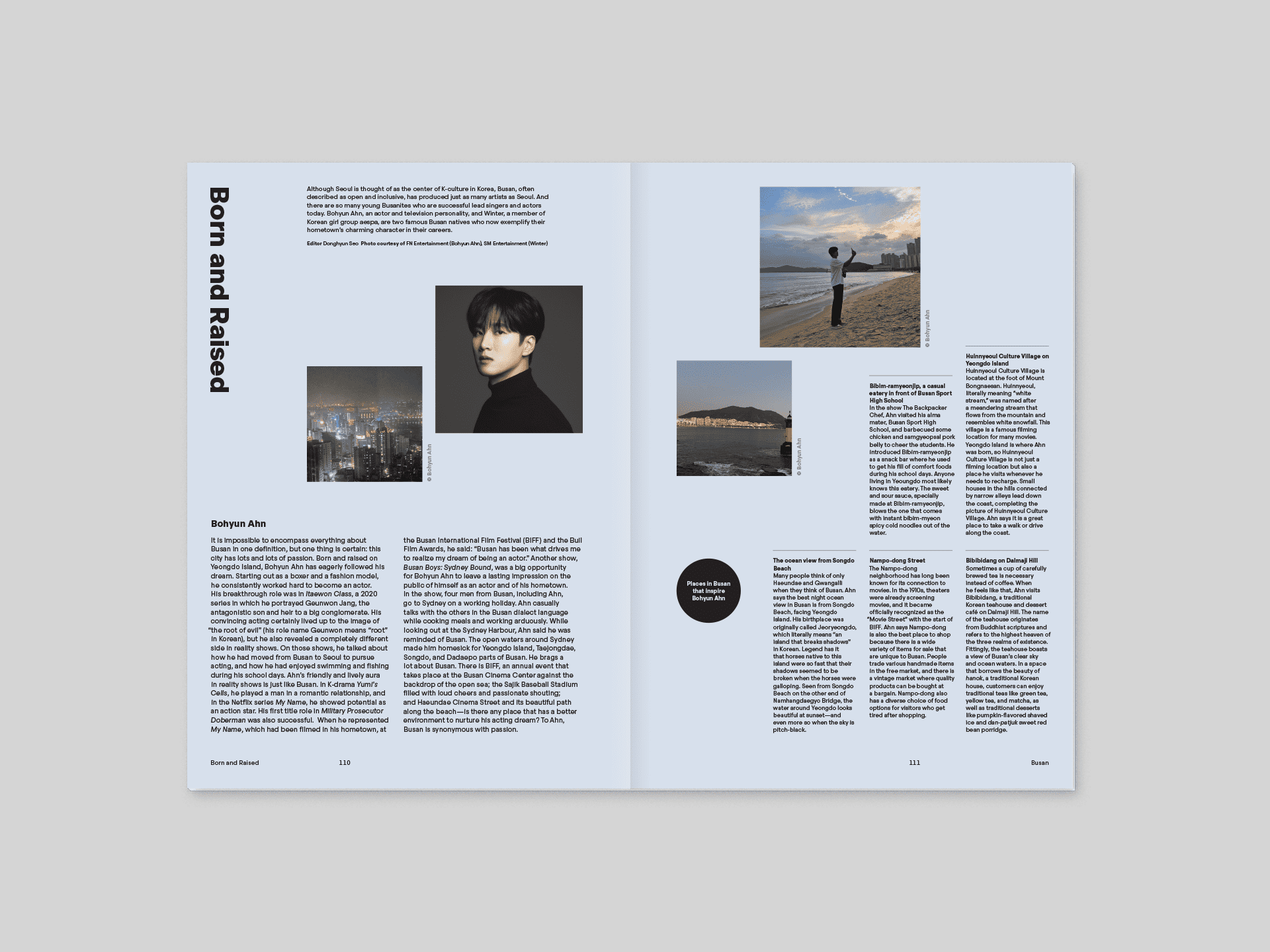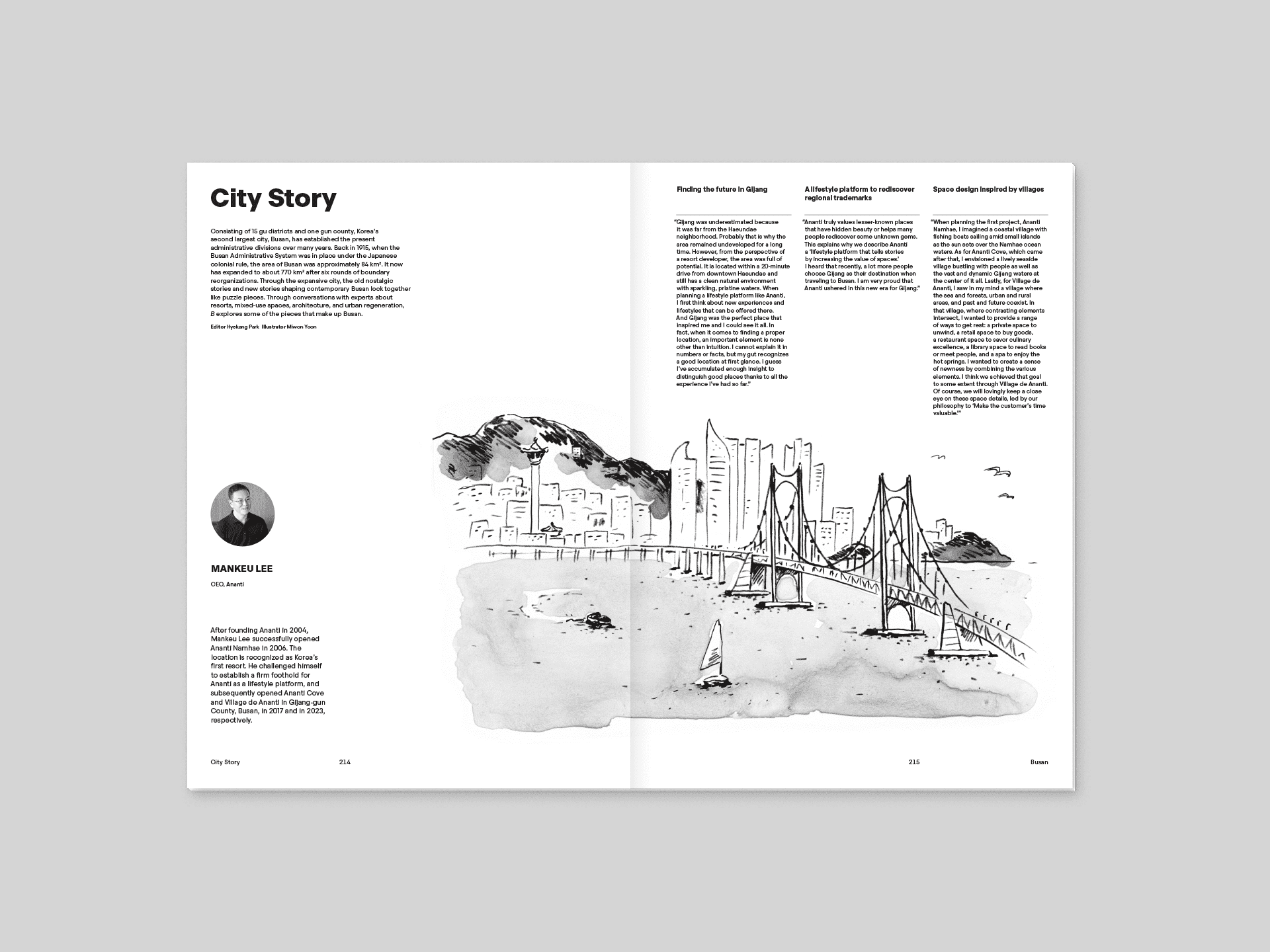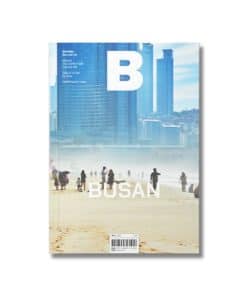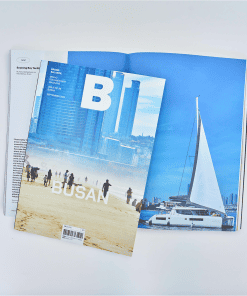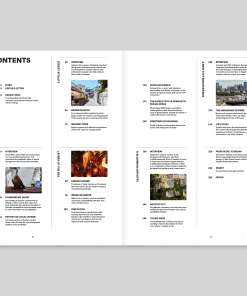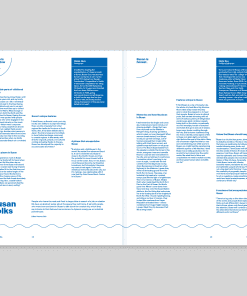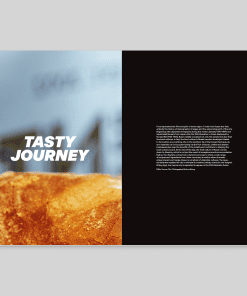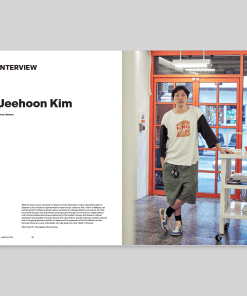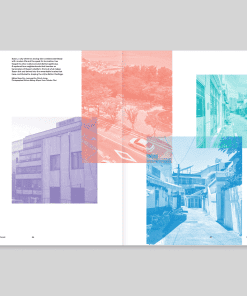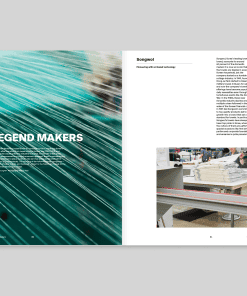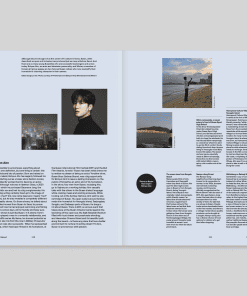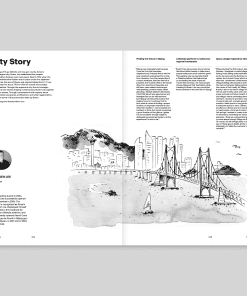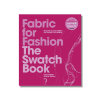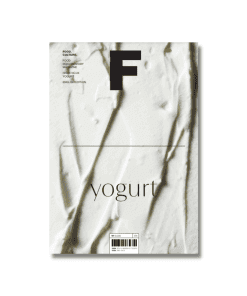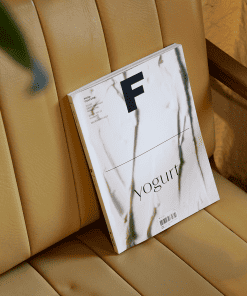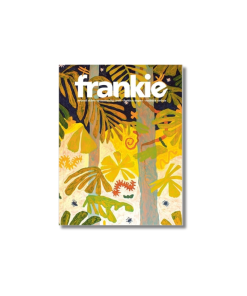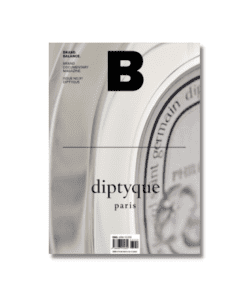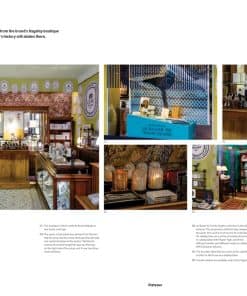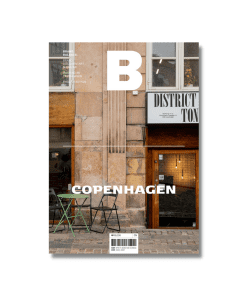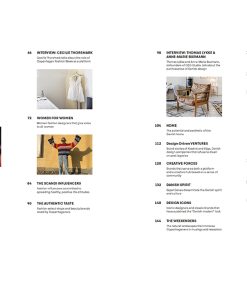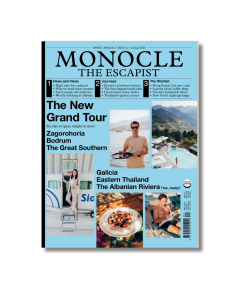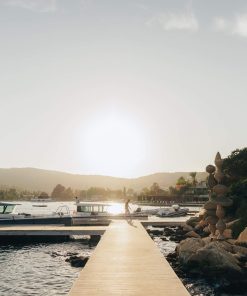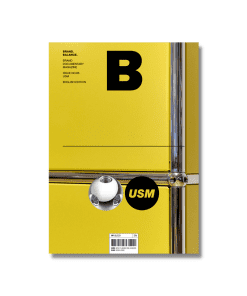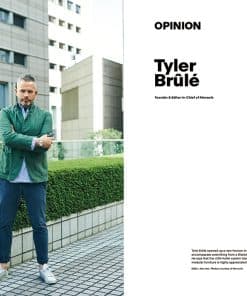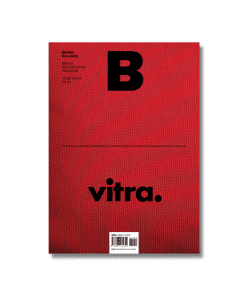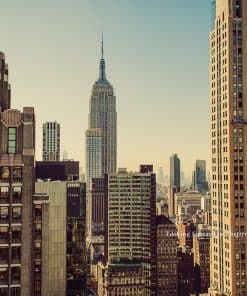Magazine B NO.96 BUSAN
480.000₫
Busan, Korea’s second-largest city, boasts breathtaking mountains and beaches. Busan achieved remarkable growth in the wake of the Korean War, driven by industries like shipping, machinery, and textiles and shoes. And this amazing feat is largely due to the city’s rapid acceptance of outside cultures. Over time, Busan has integrated many external influences and added its own twist each time. The cosmopolitan maritime city also catapulted to new heights by hosting major cultural events like the Busan International Film Festival, Busan Biennale, and G-Star, incorporating an intriguing mix of its regional and global elements. More recently, young innovative entrepreneurs are leaving their mark all over the culinary, cultural, and art scenes as they mold the port city’s singular—and inimitable—identity.
LANGUAGE: ENGLISH
SIZE: 170 X 240 MM
PAGES: 208
DATE: 2023. 09. 15.
ISBN: 979-11-983056-8-8
Còn hàng (có thể đặt hàng trước)
Welcome to the 96th issue of B.
Back in 2018, when B revisited Seoul, the capital city of Korea, to put out a second edition, we talked about what city would be the best for the city issue besides Seoul. Many of our editors—including me—thought of Busan, the second largest city in Korea, and Jejudo Island for its breathtaking natural landscapes. Five years later, we wound up doing an issue that features Busan. Of course, we were drawn to Jejudo Island because it embodies the idea of rest and relaxation, but truthfully, we were more curious about Busan’s many faces beyond the beaches and tourism. I myself visit the coastal city every year and always feel like moving there whenever I go, so it is obvious that the port city 400 km south of Seoul has some kind of magnetic allure.
Each time I arrive at Busan Station and taxi to Haeundae to get settled in—I’ve done this so many times I don’t dare to even try to count—I find myself mesmerized by the landscape of the piers as I look out the car window. Not until rows of shipping containers and towering cranes catch my eyes do I feel like, ‘Ah! Finally, I’m in Busan.’ It feels like passing through immigration. Maybe because of the unique layout of port cities, I have always assumed that Busan was bigger than Seoul. Maybe it is the impression that you can only get from the second- or the third-largest cities. Apparently, it is the norm that the nation’s largest city—the capital city in an administrative and economic sense—naturally chases ideas like “global standards” and “cosmopolitanism.” Despite the never-ending changes in architecture, culture, and commercial districts that seem to pop up overnight, capital cities always feel rather mediocre when all things are said and done. That might explain why I have recently heard globe-trotters grumbling that there is nothing special out there. Everything is already in Seoul.
But Busan has staved off this rather imminent phenomenon of standardization. Of course, the city boasts a good number of flagship stores by global brands, inventive and fancy restaurants, and uniform- like styles that hipsters wear, but these elements
do not shape the visitor’s impression of the city. Rather, Busan’s cultural elements—embedded in the clothing, food, and architecture—forge a distinctive locality in its raw state, emerging through the cracks between the well-developed infrastructure that is essential for a big city to survive. The essence of Busan that B captured for this issue also centers on the people, the products, and the companies that add contemporary twists to local tradition. From Momos Coffee’s Jooyeon Jeon, who triumphantly sprang up from the local specialty coffee scene and on to the global stage; and Balansa, a fashion brand whose contemporary chicness is no less superb than Seoul- born rivals; to Gentz Bakery, which strives to retain a sense of “Koreanness.” All these players generated cultlike followings locally and received offers to expand to Seoul. (Usually, it happens the other way around.) In a city where not even one of Korea’s top 100 companies has its headquarters, it is a feat that locally grown creativity translates to business acumen, resulting in phenomenal success.
The potential of Busan, I opine, lies with innovative small business owners, though they are wildly outnumbered by their counterparts in Seoul. Indeed, the Busanites B met say that the city’s potential is in the hands of the people who grew up in Busan, far from Seoul and close to the door to the outside world. Busan has constantly grappled with internal and external forces due to its geographical position and historical events, like outsiders coming and going, refugees from the Korean War rushing in. Even still, it seems that Busan has the most fertile soil to cultivate new contemporary ideas. This may be why I as a land dweller, born and raised in Seoul, always envy people who live near water—and where they come together, in Busan.
Eunsung Park
Editor in Chief
■ Table of contents
02 INTRO
08 EDITOR’S LETTER
12 BUSAN FOLKS
Four Busanites talk about their precious memories and the port city’s vibrant energy
18 INTERVIEW
Jiman Park, CEO of Sammi Construction Co, Ltd. And Kitchenborie Co, Ltd. maximizes the aesthetic value of space through low-rise, horizontal landmarks
24 HOMEGROWN TALENT
Key leaders in Busan’s confectionary/ baking, coffee, eomuk fish cake, and beer industries who all share the spirit of friendly competition and are always open to new information and possibilities
42 HISTORU OF LOCAL CUISINE
Old stores and local foods from the times of the Korean War and subsequent division of the peninsula
50 INTERVIEW
Jeehoon Kim, owner of Balansa, says that the growth of Busan’s street culture can be attributed to outside cultures and enthusiastic people who fully explore their fields of interest
56 NEIGHBORHOOD
Four representative neighborhoods in Busan, which are home to an intriguing mix of the analog era and contemporary twists
72 AROUND TOWN
Busan’s appeal and different impressions of the port city from young people
80 LEGEND MAKERS
Producers of steel, towels, and footwear that have served as the basis for Busan’s manufacturing industry
96 URBAN GETAWAYS
What to do in Busan, home to beautiful mountains, breathtaking beaches, and urban infrastructure
102 STAYCATION
Four fancy Busan-based hotels offer exciting experiences and amenities based on the maritime city’s abundant natural surroundings as well as rich historical and cultural elements
110 BORN AND RAISED
Bohyun Ahn, an actor and television personality, and Winter, a member of the Korean girl group aespa, gush about their hometown
113 THE WORLD EXPO IS COMING TO BUSAN, KOREA
World Expo 2030 Busan, a solutions-based platform that aims to tackle an array of global issues, shapes the future of cities with tools for soft power
145 GREETINGS FROM BUSAN
Made-in-Busan products that feature the active and lively spirit of Busan
156 INTERVIEW
Haeju Kim, a senior curator at the Singapore Art Museum, says that multidimensional effort is needed to work is important to properly appreciate the multifaceted landscape of Busan, which is a combination of land waves created by geographical patterns and ocean waves
162 ARTISTIC CITY
Art galleries, museums, and fairs that have enhanced the level of artistic and cultural sensibility of Busan
180 YOUNG WAVE
Young artists who call Busan home are working to lay the foundation for their own unique, creative world
190 INTERVIEW
Founder and CEO of Krypton Kyungjun Yang says that Busan is the optimal city for local startups, an emerging alternative to boost local economies, to digest outside cultures in their own ways
196 THE AWAKENING GROUND
“New local” projects that rewrite the stories and values of the city while preserving the traces of the past
214 CITY STORY
“New local” projects that rewrite the stories and values of the city while preserving the traces of the past
218 FROM SEOUL TO BUSAN
Seoul-born fashion and beauty brands that incorporated Busan’s locality into the design of their Busan-based outlets for a singular brand experience
222 DIGEST
A look at Busan through numbers
233 OUTRO
Sản phẩm tương tự
Category
*READY TO SHIP
Advertising & Marketing
Category
*READY TO SHIP
Category
Category
Advertising & Marketing

